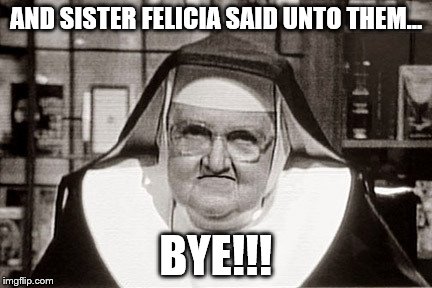Apache Stronghold v. United States
Video: Apache sacred land threatened by mining in Arizona
A sacred site since time immemorial
Since before recorded history, Western Apaches have lived, worshipped on, and cared for Oak Flat and surrounding lands. Apaches believe that the Creator gives life to all things, including air, water, and the earth itself. Their religious and cultural identity is inextricably tied to the land, and Oak Flat has paramount significance for prayer and sacred ceremonies. Many of their most important religious practices must take place there, such as the coming-of-age Sunrise Ceremony for Apache women; sweat lodge ceremonies; gathering of sacred medicine plants, animals, and minerals; and the use of sacred waters. It is considered the direct corridor to Apache religion—recognized in the National Register of Historic Places and sometimes compared to Mount Sinai for Jews.
Broken promises
Unfortunately, the U.S. government has a sordid history of destroying Apaches’ lives and land for the sake of mining interests. In the 1870s, the federal government forced the Apache people onto the San Carlos Apache Indian Reservation and authorized miners to take Apache land. And although Oak Flat has been expressly protected from mining since the Eisenhower administration, mining companies still covet Oak Flat for a large copper deposit 7,000 feet below the surface.
Mining companies have long lobbied Congress to give them control of the land. One sponsor of a land-transfer bill was even convicted of soliciting a bribe from a mining company in exchange for his support. For many years, Congress refused, protecting the site from exploitation the same way it would preserve a historic, centuries-old church, mosque or synagogue. But in 2014, a last-minute rider was attached to a must-pass defense bill, ordering the land to be transferred to a foreign-owned mining company, Resolution Copper. The government admits the mine will destroy Oak Flat forever—obliterating the sacred ground in a nearly 2-mile-wide, 1,100-foot-deep crater, and making the Apaches’ religious practices impossible.
Seeking Justice
Apache Stronghold—a coalition of Apaches, other Native peoples, and non-Native allies dedicated to preserving Oak Flat—sued the government in federal court. They argued that the destruction of their sacred site violates the Religious Freedom Restoration Act (RFRA) and an 1852 treaty promising that the United States would protect their land and “secure the permanent prosperity and happiness” of the Apaches. After the trial court declined to halt the land transfer, Becket filed an emergency appeal to the Ninth Circuit Court of Appeals. Just six hours before the government’s response was due, the government announced that it would withdraw the environmental impact statement that triggered the land transfer, delaying the transfer for several months. On June 24, 2022, the Ninth Circuit Court of Appeals refused to protect Oak Flat, saying that the land transfer to Resolution Copper did not substantially burden the Apaches’ religious exercise. In a dissenting opinion, Judge Marsha Berzon called the ruling “absurd,” “illogical,” “disingenuous,” and “incoheren[t].”
In November 2022, the Ninth Circuit agreed to rehear the case “en banc”––meaning in front of a larger panel of eleven judges. On March 1, 2024, the Ninth Circuit again refused to stop the federal government from transferring the sacred site to Resolution Copper. Five judges dissented from the ruling, writing that the majority “tragically err[ed]” in allowing the government to “obliterat[e] Oak Flat” and prevent the “Western Apaches from ever again” engaging in their religious exercise.
This is not the end for Oak Flat. Apache Stronghold asked the Ninth Circuit to rehear the case, this time asking all 29 judges to protect their sacred site at Oak Flat. If the full court declines to reconsider the case, Apache Stronghold has vowed to appeal the decision to the Supreme Court.
In addition to Becket, Apache Stronghold is represented by attorneys Michael Nixon and Clifford Levenson.
Importance to Religious Liberty:
- Individual Freedom: The government cannot take actions that prevent or burden the expression or pursuit of religious beliefs. Because each human has an individual right to follow the unique dictates of his conscience, religious freedom cannot be confined to the four walls of a church building. Individuals should be free to pursue their faith at all times without fear of government discrimination or penalty.
- Religious liberty for Native Americans: Whether they are directly targeted or indirectly affected by government actions, minority religious groups are particularly vulnerable to government violations of their religious liberty. Actively defending religious liberty for Native Americans strengthens religious liberty for people of all faiths.
- Religious Freedom Restoration Act: Passed by a bipartisan coalition in 1993, this legislation protects religious groups by requiring the government to show a compelling interest and use the least restrictive means possible when its actions would pose a substantial burden on religious exercise.
Photo © Robin Silver Photography
 N, D.C. – As Cuban officials prepare to bury Fidel Castro’s ashes, his secret police continue to detain dissidents. Danilo Maldonado, a performance artist,
N, D.C. – As Cuban officials prepare to bury Fidel Castro’s ashes, his secret police continue to detain dissidents. Danilo Maldonado, a performance artist,  Who deserves a lump of coal this holiday season? Each year Becket names the most absurd affronts to Christmas and Hanukkah, listing the most outrageous offenders of holiday cheer until we reach the top bah-humbugging, grinchiest transgressor. Not only do they deserve a lump of coal, they are crowned with the great (dis)honorable Ebenezer Award.
Who deserves a lump of coal this holiday season? Each year Becket names the most absurd affronts to Christmas and Hanukkah, listing the most outrageous offenders of holiday cheer until we reach the top bah-humbugging, grinchiest transgressor. Not only do they deserve a lump of coal, they are crowned with the great (dis)honorable Ebenezer Award.






 by
by  by
by  Like all those who knew Whitney Ball, I was so sad to hear of her passing on August 17th; it was too soon and she was too young. Despite contracting cancer at a young age, Whitney lived her life looking forward.
Like all those who knew Whitney Ball, I was so sad to hear of her passing on August 17th; it was too soon and she was too young. Despite contracting cancer at a young age, Whitney lived her life looking forward.
 by
by 


 By
By  It’s almost midnight, and my day has just started. While I was immersed in my daily work throughout the day, I moved among my tasks without breaking to eat or drink—for all 17 hours of my Washington, DC July fast. Now that the sun has set and my kids have gone to bed, I can turn to reflecting and meditating: the stuff Ramadan is all about. Ramadan, especially Ramadan at night, is about putting your worldly concerns behind as you turn inward, and toward God. The experience is deepened by the day’s fast, which gives you an intimate look inside the daily suffering of people all over the world whose hunger is never satiated.
It’s almost midnight, and my day has just started. While I was immersed in my daily work throughout the day, I moved among my tasks without breaking to eat or drink—for all 17 hours of my Washington, DC July fast. Now that the sun has set and my kids have gone to bed, I can turn to reflecting and meditating: the stuff Ramadan is all about. Ramadan, especially Ramadan at night, is about putting your worldly concerns behind as you turn inward, and toward God. The experience is deepened by the day’s fast, which gives you an intimate look inside the daily suffering of people all over the world whose hunger is never satiated. By
By 
 By
By  By
By 

 by: Eric Rassbach
by: Eric Rassbach